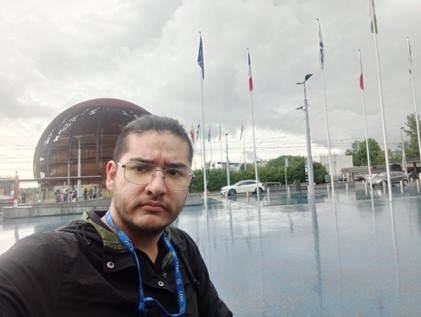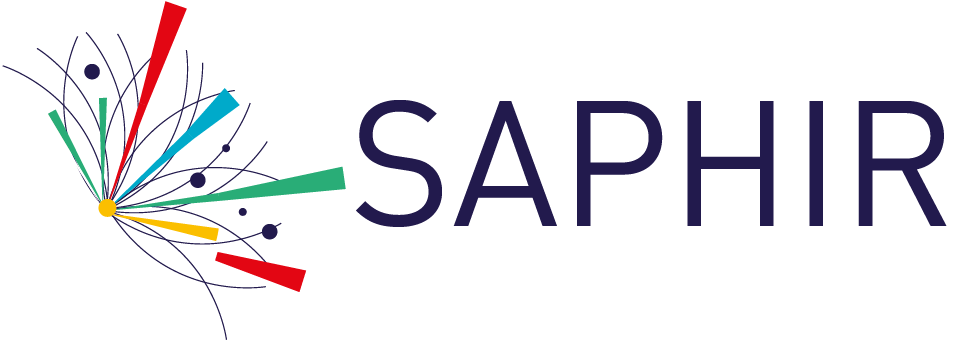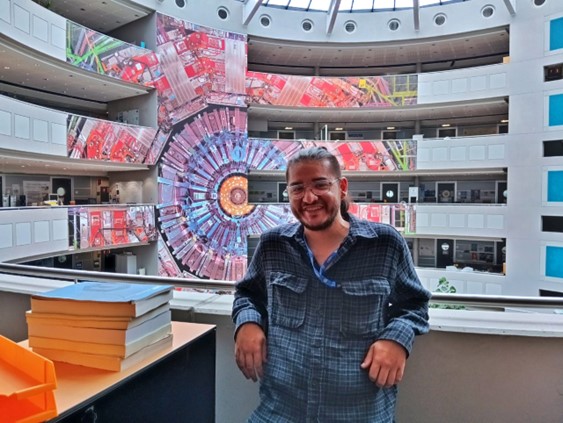The CERN summer program is focused on providing hands-on experience for undergraduate and graduate students interested in working in the area of high-energy physics research. The SAPHIR Millennium Institute annually funds the participation of students in this activity as part of its commitment to foster the formation of advanced human capital.
Paulo Areyuna is a graduate of the master's degree in physics from the Universidad Técnica Federico Santa María and is currently working at SAPHIR as technical support in projects led by the researchers Alfonso Zerwekh (UTFSM) and Jilberto Zamora (UNAB).
Thanks to the scholarship offered by the Millennium Institute SAPHIR, he had the opportunity to travel to Geneva to participate in one of the versions of the Summer Student Program. Summer Student Program of the European Organization for Nuclear Research, CERN.
This event aims to bring young undergraduate and graduate students closer to research work in the area of particle physics. In this context Paulo worked with a "team of scientists managing the distributed computing system used to analyze the ATLAS data.".
About his role during his two-month stay at the research center, he says he focused on supporting the processing of data produced in the ATLAS experiment, which aims to detect some of the tiniest but most energetic particles ever created on Earth. ATLAS experiment, which aims to detect some of the tiniest but most energetic particles ever created on Earth..
"Due to the large size of the data being processed, the analysis tasks are divided into the computer grid (grid) to which ATLAS has access. The idea of the project was to define complexity metrics for the different jobs that are assigned to this grid of computers, to try to predict the execution time of the tasks and thus be able to optimize the distribution of the jobs on the different servers," Paulo explains about the tasks he performed for the experiment.

On experience and the future
In addition to collaborating with the execution of an experiment, attendees interact with people from diverse countries and backgrounds. "The most valuable thing for me was the cultural exchange, at CERN there are people from literally all over the world, and there is a great diversity with respect to opinions and cultures. The interesting thing is that what we all had in common was the desire to learn and contribute to the work being done at this center," he said.
Paulo, continues to develop in the scientific area although for the moment he rules out returning to CERN. "At the moment I am working on the development of predictions that emerge from dark matter models. For the moment I have no plans to return to CERN, however, I am still in contact with colleagues from other countries, mainly with people from other Latin American countries. Without going too far ahead, I can say that we have long term plans, and great things are coming for theoretical physics in LATAM", he said.
Finally, we asked him for some advice for other advice for other young people who are interested in studying science and he indicated that: "I would tell them to keep in mind that great discoveries come from collaboration..... The best scientist is not the one who knows the most, but the one who is able to collaborate effectively, and while learning autonomously is important, you have to learn to work collaboratively as soon as possible. CERN is a clear example of how we can produce much more together.
We remind you that you can find out about other experiences of our students in the news section.

